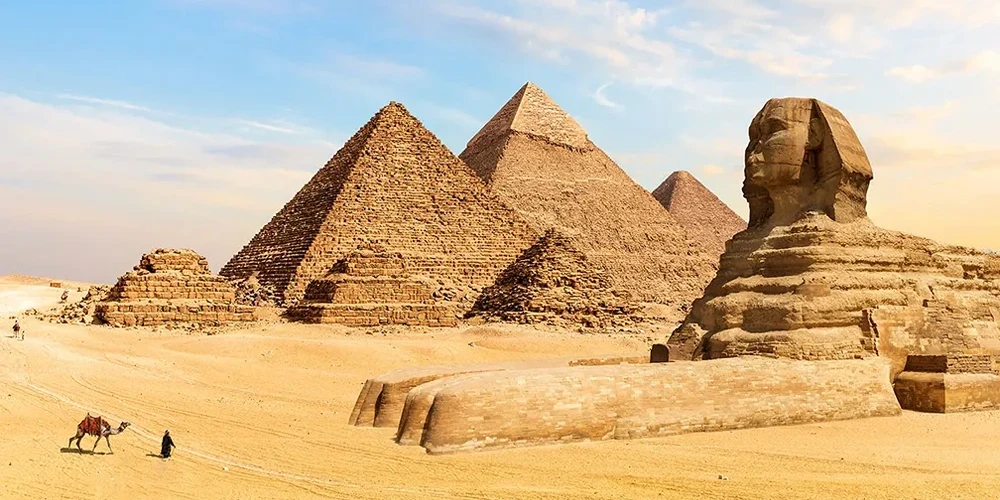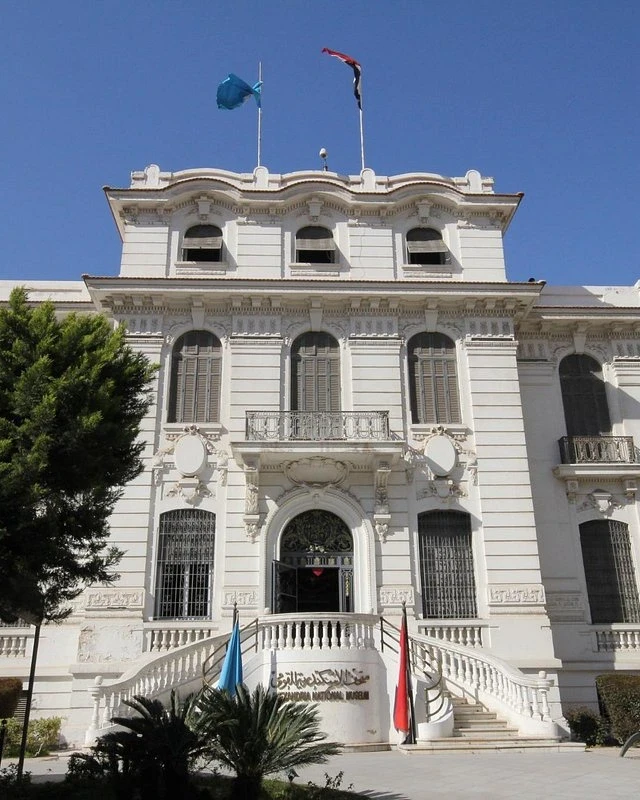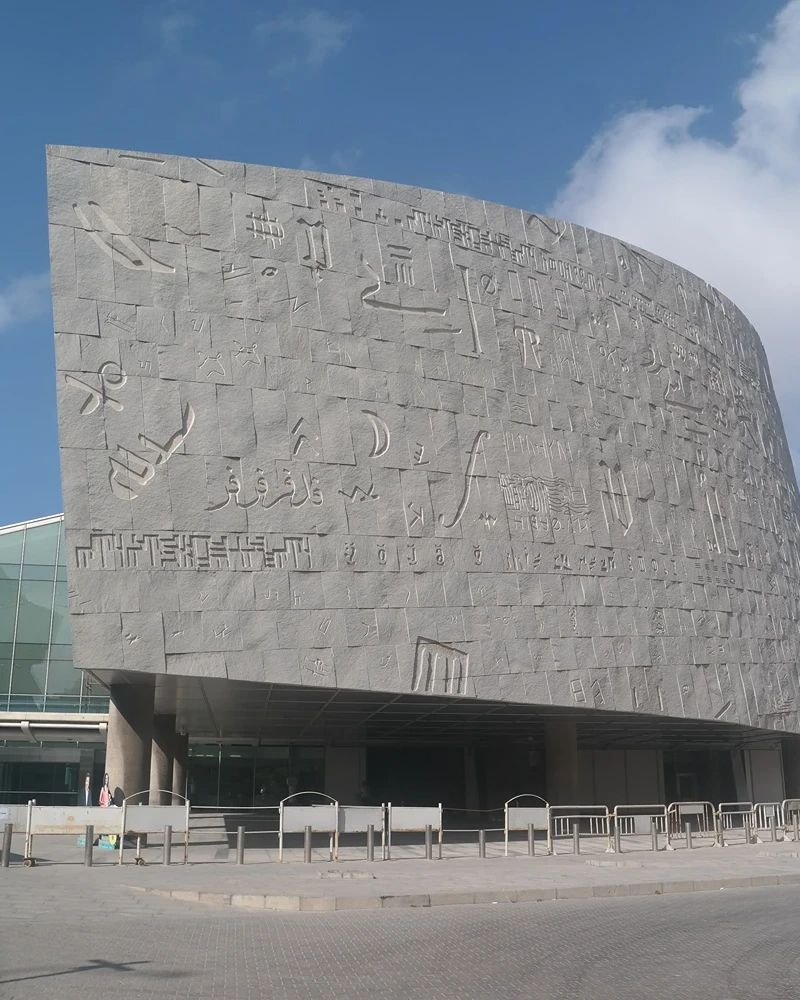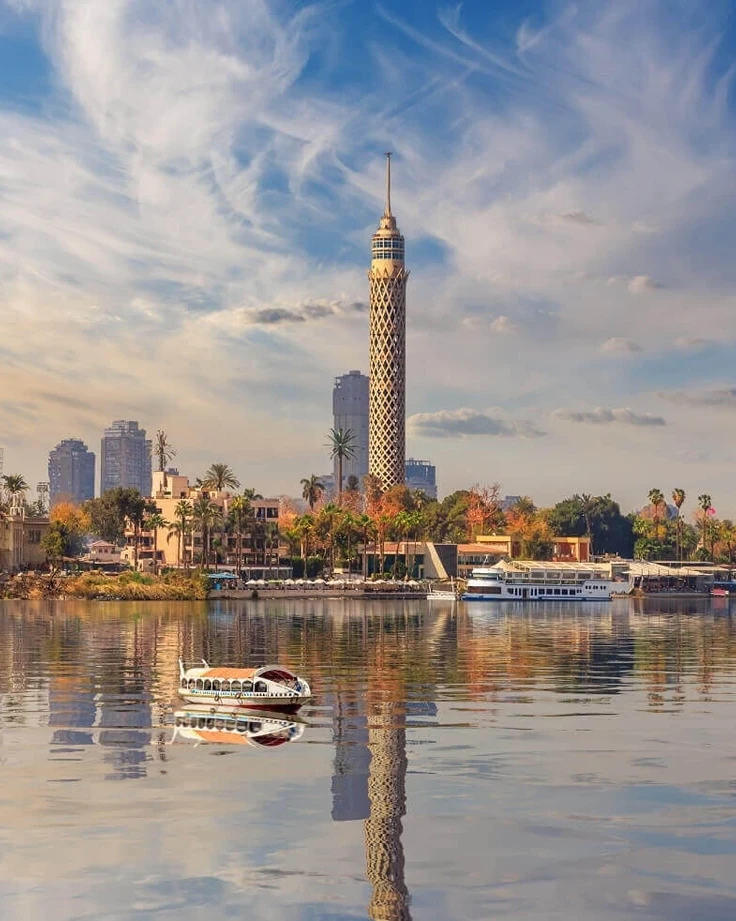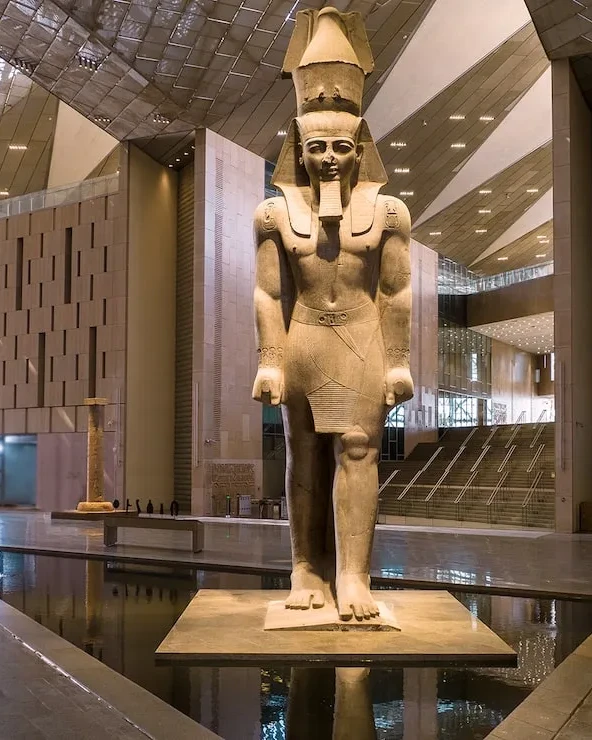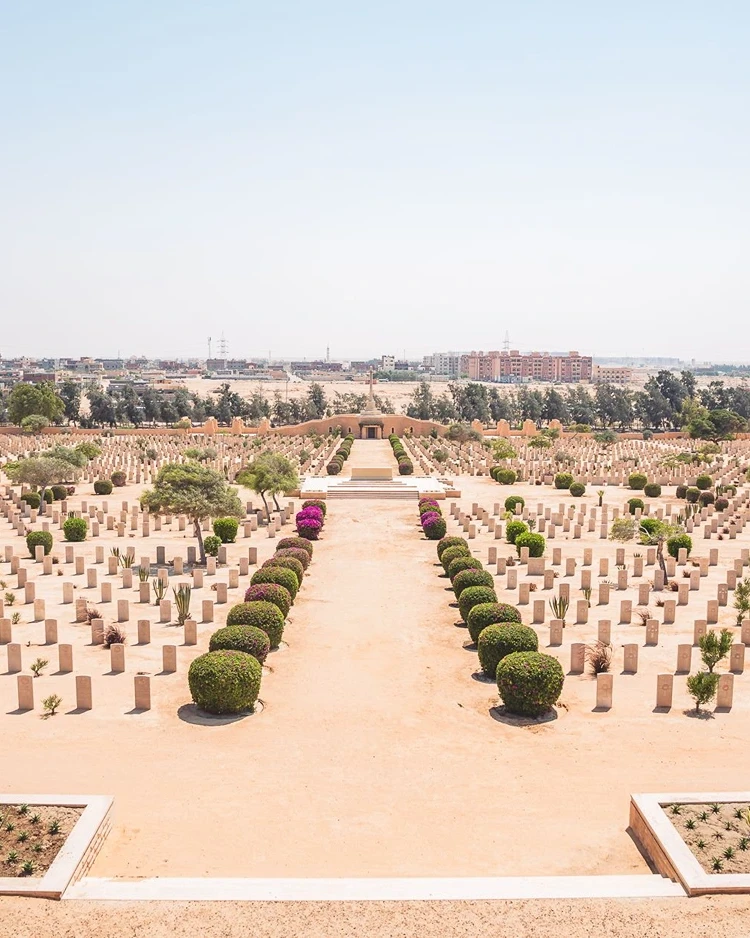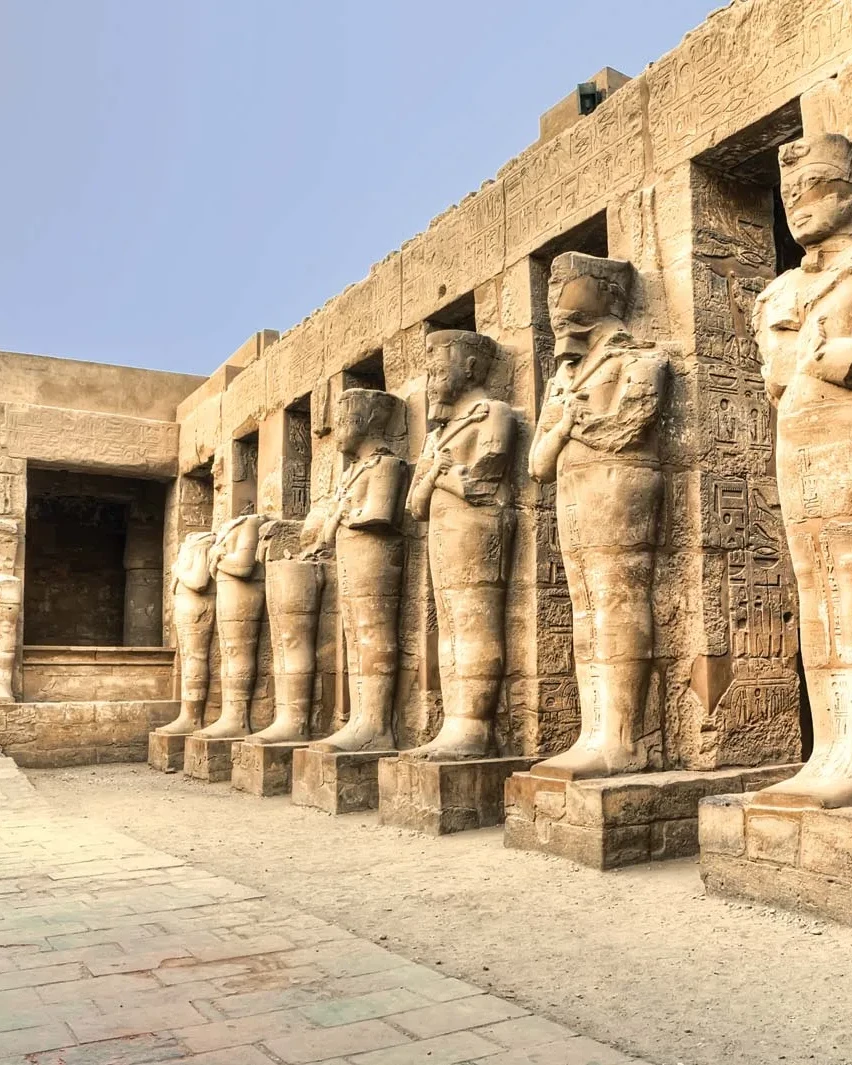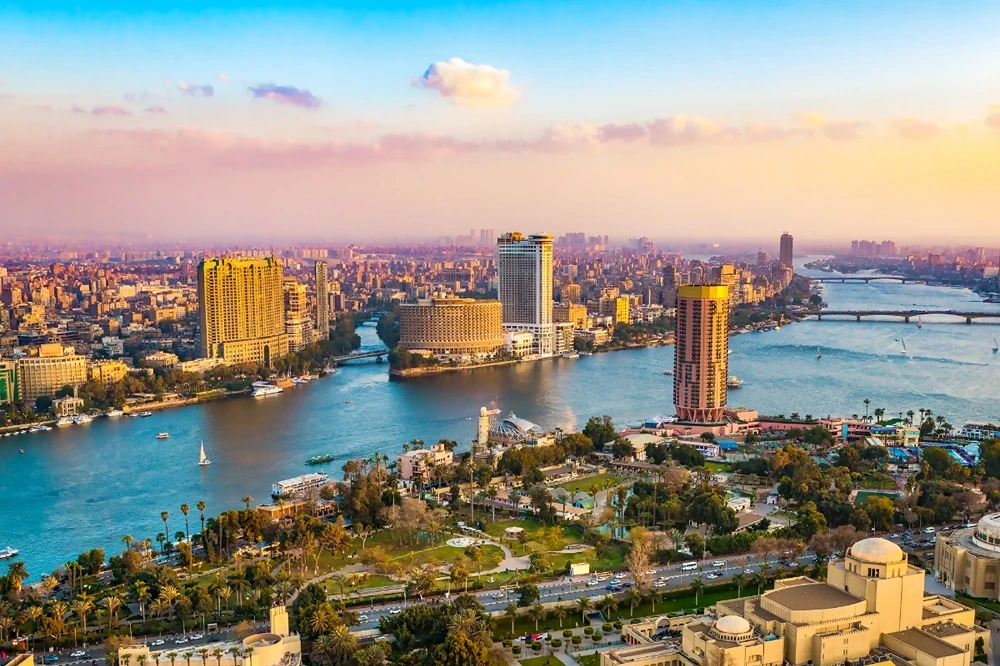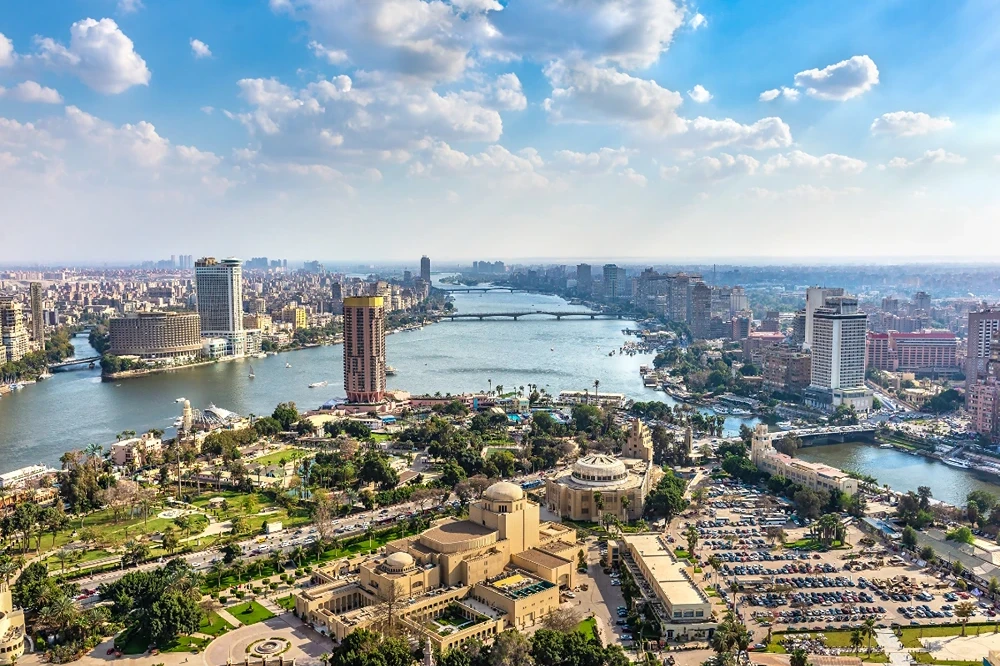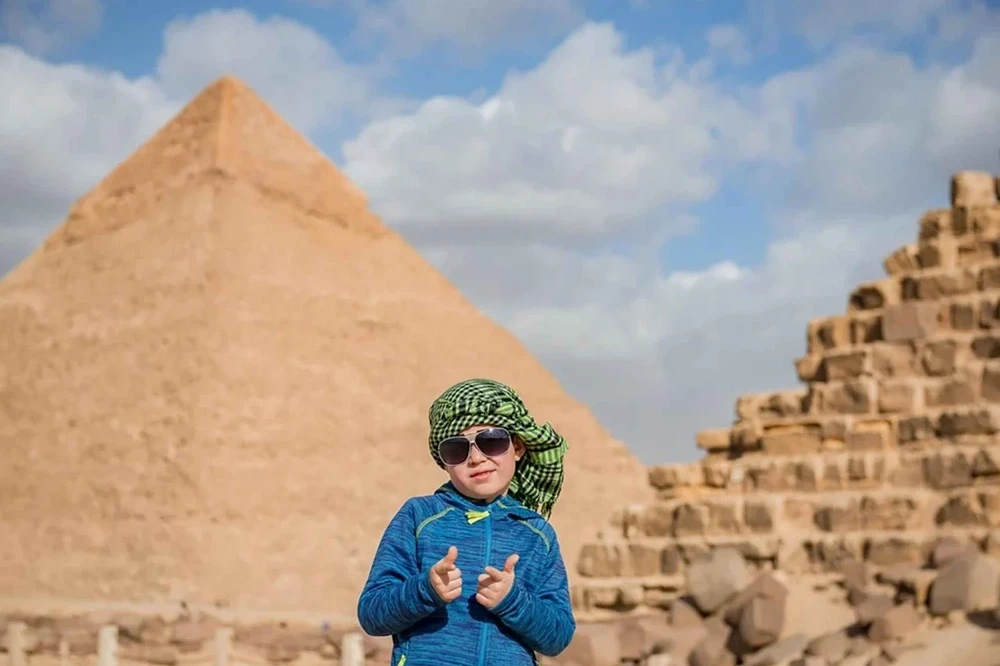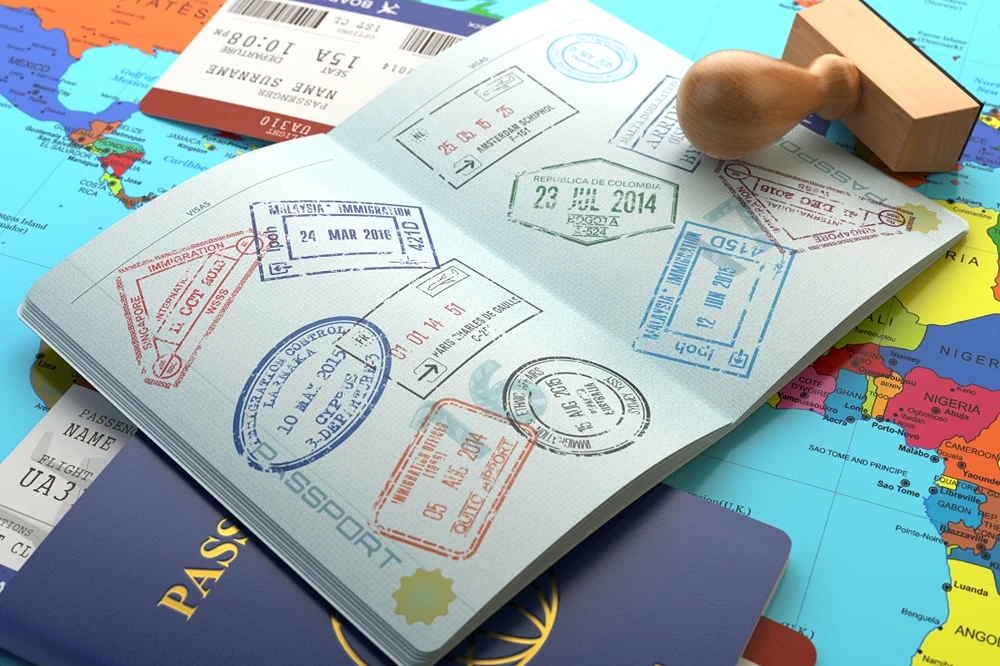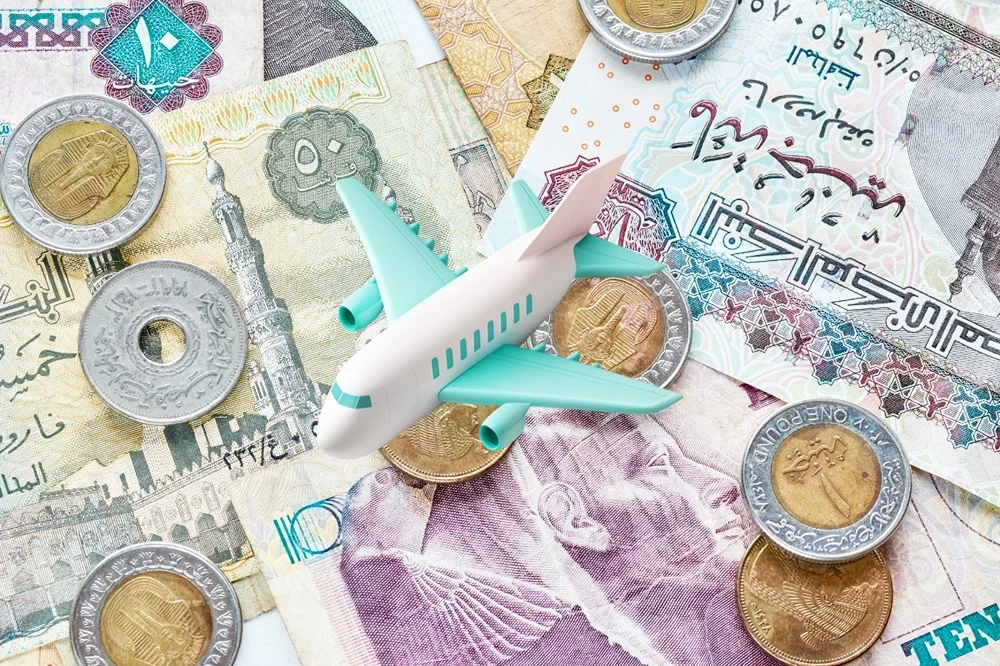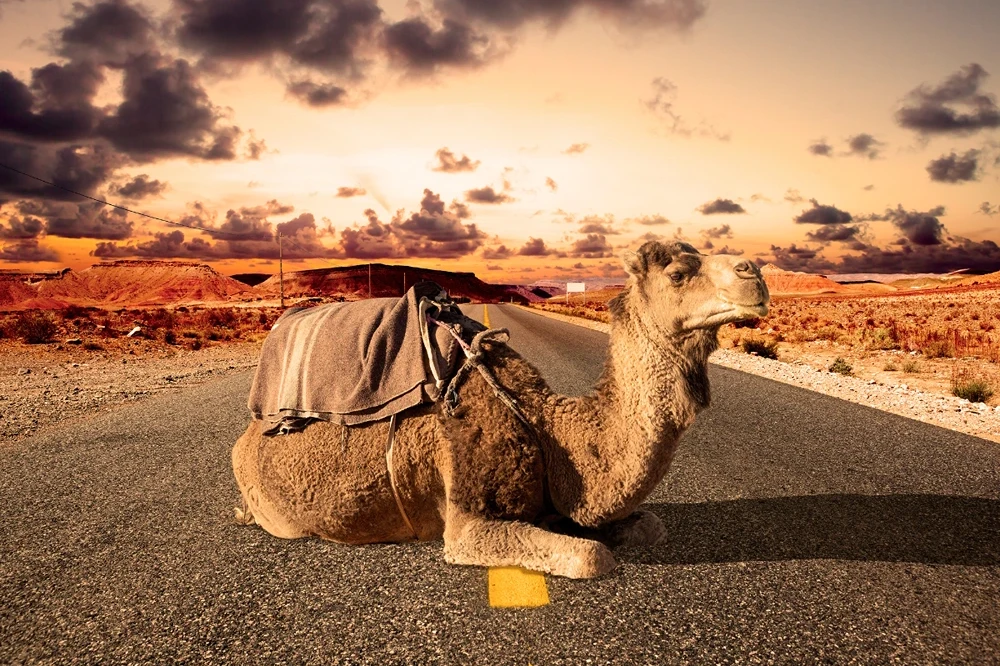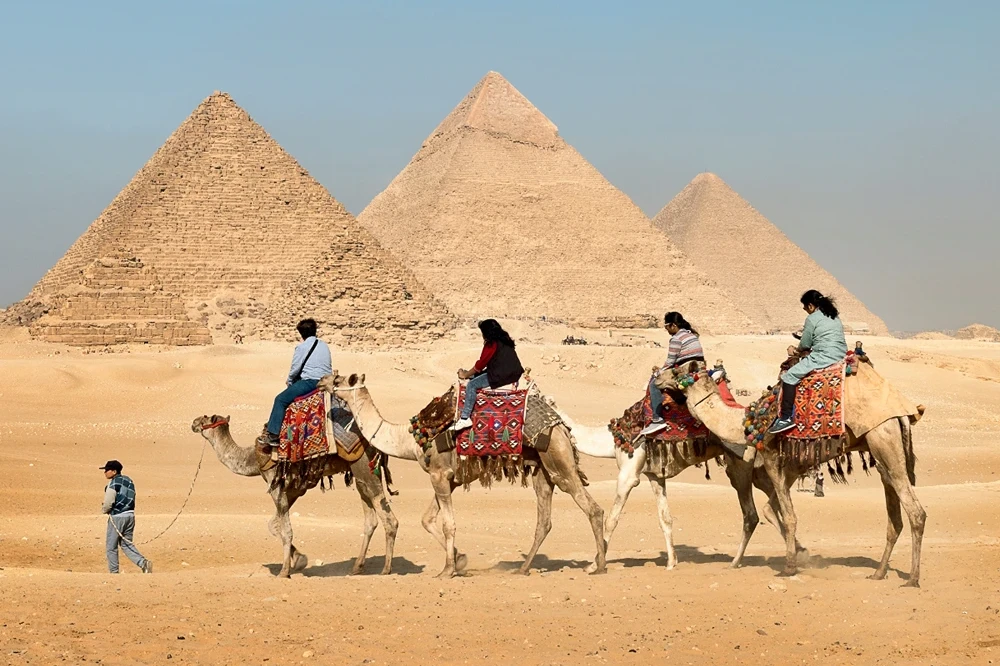Travel Resources
Prepare for your journey to Egypt with these essential resources:
- Flights: Cairo International Airport (CAI) is the main gateway. Use flight comparison tools for the best deals.
- Accommodations: Options range from luxury Nile-view hotels to budget-friendly hostels in major cities.
- Transportation: Consider purchasing a Egyptair Pass for domestic flights if visiting multiple cities.
- Tours: Book guided tours for major attractions like the Pyramids and Valley of the Kings for in-depth historical context.
Top Attractions
Is it possible for a single museum to encapsulate thousands…
Imagine a library that not only preserves ancient wisdom…
Ever wondered what the Eiffel Tower, the Empire State…
How can a single building contain the essence of a…
How do you honor heroes who shaped the course of history?…
What ancient site can rival the grandeur and intrigue of…
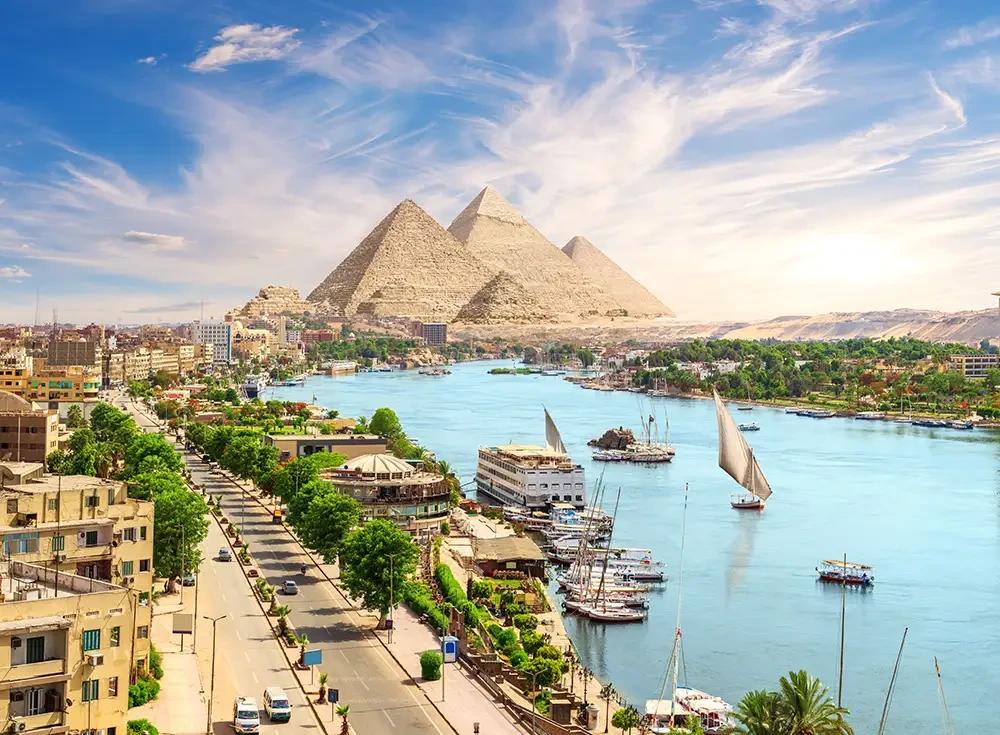
Some History First
Egypt’s history spans over 5,000 years. The ancient Egyptian civilization flourished along the Nile from about 3100 BCE, leaving behind monumental architecture and intricate artwork. Key periods include:
- Old Kingdom (c. 2686-2181 BCE): Era of pyramid building
- New Kingdom (c. 1550-1069 BCE): Peak of Egypt’s power, including the reign of Tutankhamun
- Ptolemaic Period (305-30 BCE): Rule of Greek-speaking Ptolemies, ending with Cleopatra VII
- Roman and Byzantine Periods (30 BCE-641 CE)
- Islamic Era (641 CE-present)
Egypt Today
Modern Egypt is a vibrant mix of ancient traditions and contemporary life. Cairo, the capital, is home to over 20 million people and serves as the country’s cultural and economic hub. Tourism remains a crucial industry, with ongoing efforts to preserve historical sites while developing new attractions.
Is Egypt Safe?
Egypt has made significant strides in improving tourist safety. While general precautions should be taken:
- Tourist areas are well-policed
- Avoid political demonstrations
- Use reputable tour operators for excursions
- Stay alert in crowded areas and safeguard personal belongings
- Follow local customs and dress codes, especially in conservative areas
Where is Egypt?
Egypt is located in the northeastern corner of Africa, bordering the Mediterranean Sea to the north and the Red Sea to the east. It shares borders with Libya to the west and Sudan to the south. The Sinai Peninsula forms a land bridge to Southwest Asia.
Latest Articles
From The Area
What is the Best Time to Visit Egypt?
- October to April: Peak season with cooler temperatures, ideal for sightseeing
- May to September: Hot weather, but fewer crowds and lower prices
- Ramadan: Dates vary yearly; many restaurants close during daylight hours
- Eid al-Fitr and Eid al-Adha: Festive periods, but expect higher prices and crowds
How to Get to Egypt & Around
- International Flights: Major airports in Cairo, Luxor, and Sharm El Sheikh
- Domestic Travel:
- Flights connect major cities
- Trains run between Cairo, Alexandria, and Luxor
- Buses for budget travel between cities
- Local Transport:
- Taxis (use metered or agree on fare beforehand)
- Uber available in major cities
- Metro in Cairo
Things to Do in Egypt
Egypt offers a treasure trove of experiences that span millennia of history and culture. From ancient wonders to modern adventures, there’s something for every type of traveler. Whether you’re exploring iconic archaeological sites, cruising down the Nile, or diving in the Red Sea, Egypt promises unforgettable memories.
Where To Stay In Egypt
Egypt caters to all types of travelers with its diverse range of accommodations. From opulent palace hotels to cozy guesthouses, you’ll find options to suit every budget and preference. Many cities offer unique lodging experiences that reflect Egypt’s rich history and culture.
Popular accommodation options include:
- Cairo: Luxury hotels along the Nile, boutique hotels in Zamalek, budget hostels in Downtown
- Luxor: Nile-view resorts, charming guesthouses near Luxor Temple
- Aswan: Riverfront hotels, traditional Nubian houses on Elephantine Island
- Sharm El Sheikh/Hurghada: All-inclusive beach resorts, diving lodges
- Alexandria: Seafront hotels, city-center accommodations with colonial charm
- Siwa Oasis: Eco-lodges built in traditional Berber style
- Dahab: Laid-back beach camps, boutique hotels for a bohemian vibe
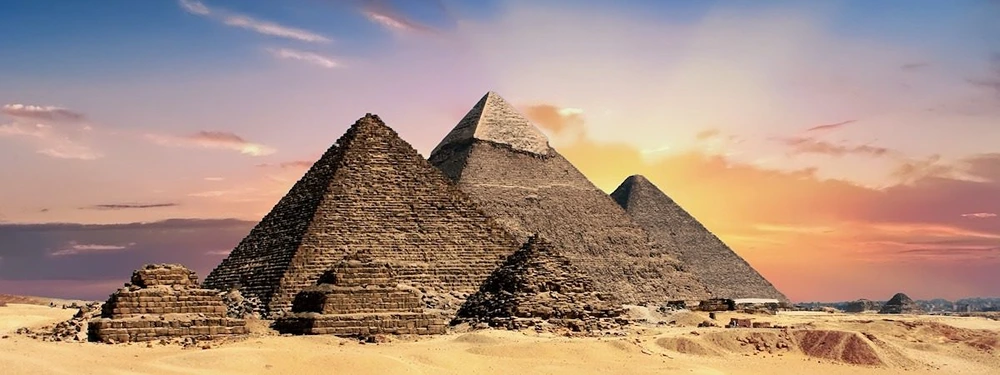
What To Eat In Egypt
Egyptian cuisine is a delightful fusion of Mediterranean and Middle Eastern flavors, with roots tracing back to ancient times. Street food is abundant and delicious, while sit-down restaurants offer both local and international dishes. Don’t miss the chance to savor traditional Egyptian meals during your visit.
Must-try Egyptian dishes include:
- Kushari: A beloved street food mix of rice, lentils, pasta, and spicy tomato sauce
- Ful Medames: Slow-cooked fava beans, often served for breakfast
- Ta’meya (Egyptian Falafel): Made with fava beans instead of chickpeas
- Molokhia: A soup made from jute leaves, typically served with chicken or rabbit
- Mahshi: Stuffed grape leaves or vegetables
- Feteer Meshaltet: A flaky, layered pastry that can be sweet or savory
- Um Ali: A warm, creamy bread pudding dessert
- Shawarma: Spit-roasted meat served in pita bread
- Baba Ganoush: Smoky eggplant dip
- Egyptian mint tea: A refreshing drink enjoyed throughout the day
Entry & Exit Requirements
Navigating Egypt’s entry requirements is generally straightforward, but it’s crucial to ensure you have all necessary documents before travel. Visa policies can change, so always check with official sources for the most up-to-date information.
Key points to remember:
- Tourist visas available on arrival for many nationalities ($25 USD)
- E-Visa can be obtained online before travel for added convenience
- Passport must be valid for at least 6 months beyond your planned stay
- Proof of onward travel may be required by some airlines
- Visa extensions possible through the Mogamma Building in Cairo
- Exit fees are typically included in airline ticket prices
- Special permits required for travel to certain border areas
What To Pack For Your Trip
Packing for Egypt requires consideration of the climate, cultural norms, and your planned activities. The country’s weather can be extremely hot, especially in summer, and conservative dress is appreciated, particularly in rural areas and religious sites.
Essential items to pack include:
- Lightweight, breathable clothing that covers shoulders and knees
- Comfortable, sturdy walking shoes for exploring ancient sites
- Sun protection: wide-brimmed hat, sunglasses, high-SPF sunscreen
- Insect repellent, especially if visiting rural areas or the Nile
- Power adapter (Egypt uses 220V, 50Hz with Type C and F plugs)
- Basic medical kit including stomach remedies
- Modest swimwear for beach resorts
- Light jacket or sweater for cool evenings and air-conditioned spaces
- Reusable water bottle to stay hydrated
- Cash for tipping and small purchases (small denominations of Egyptian pounds)
- Scarf for women to cover hair when visiting mosques
- Camera or smartphone for capturing memories
FAQs
Explore commonly asked questions about visiting Egypt:
Most visitors to Egypt require a visa. Check with Egyptian authorities or embassies for specific visa requirements based on your nationality.
Egypt is generally safe for tourists, but it’s advisable to stay informed about current events and follow travel advisories from your home country.
It’s recommended to drink bottled or filtered water in Egypt to avoid potential health risks.
Arabic is the official language of Egypt. English and French are also widely spoken, especially in tourist areas and major cities.


